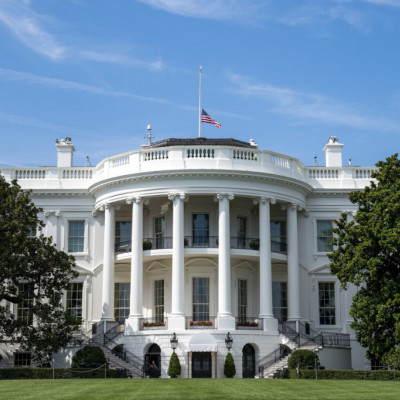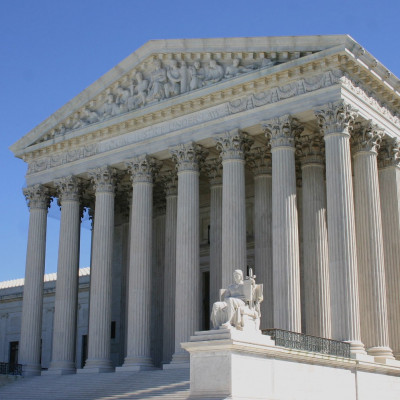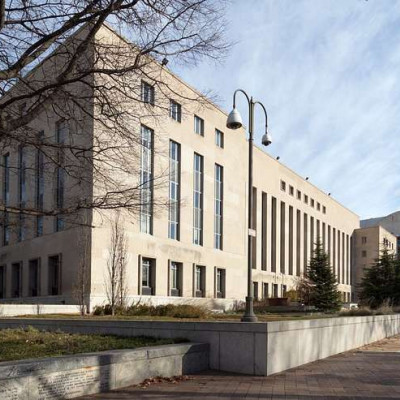October 4, 2023
September 2023 at Policy Integrity
- Presidential Support for Using Climate Cost Metrics
- An Uncertain Future for Expert-Informed Regulation
- A Useful Tool for More Legally Resilient Regulations
- “Accelerating the Energy Transition” - Conference Recap
- Urging Stronger Oversight of Natural Gas Planning
- More from This Month
-

Presidential Support for Using Climate Cost Metrics
Federal agencies may soon directly apply monetized climate-damage valuations in budgeting, procurement, and other decisions, thanks to a new presidential directive. Across our work, we have consistently called for the usage of the social cost of greenhouse gases (SC-GHG) to inform all relevant government decisions. This month, President Biden heeded that call in a presidential directive instructing federal agencies to use the SC-GHG in a wide variety of contexts. As our Max Sarinsky told The Hill, the increased use of these metrics will “balance climate effects against other economic effects.” Many of the specific instructions in the directive align with suggestions we provided in a 2021 report. For example, we recommended that the SC-GHG be consistently used in the drafting of environmental reviews under NEPA, the determination of administrative penalties for regulatory non-compliance, the assessment of applications for discretionary grants, and the evaluation of government purchasing decisions.
-

An Uncertain Future for Expert-Informed Regulation
For decades Congress has legislated with the understanding that subject matter experts within federal agencies will implement the law through regulations based on the latest scientific evidence. As Dena Adler explained to Carbon Tracker, those assumptions may be shaken up in the coming year. In Loper Bright Enterprises v. Raimondo, the Supreme Court will review the decades-old Chevron Doctrine, which grants deference to reasonable agency interpretations of ambiguous laws. If the Court scraps Chevron, Adler noted that “the courts will hold more power to shape implementation of the law” than in recent decades. Policy Integrity will be closely following developments in this case as it plays out.
-

A Useful Tool for More Legally Resilient Regulations
To address legal uncertainty when issuing a new regulation, federal agencies often use administrative severability clauses, which direct a court to sever invalid portions of a rule and leave the remainder intact. In theory, these clauses should make regulations more durable, but – as Adelaide Duckett and Donald Goodson explain in an issue brief we published this month – they must be deployed properly to be effective. Specifically, Duckett and Goodson's analysis of recent case law found that courts often overlook boilerplate severability clauses. To ensure that more portions of a regulation have the best shot at surviving litigation, the authors recommend that agencies include more thorough severability analyses in rules and their supporting analyses at all stages of the rulemaking process.
-

“Accelerating the Energy Transition” – Conference Recap
On September 19th, in collaboration with the Urban Future Lab, we hosted our annual conference. The event saw distinguished panelists from diverse sectors—including federal agencies, private industries, and research organizations—delve into pressing topics such as technology-forcing regulations in the transportation and power sectors, equity in the energy transition, and innovative strategies to amplify demand for emerging technologies. Highlights included insights from emissions regulators at the U.S. Environmental Protection Agency and a detailed discussion of the role that policy can play in expanding markets for clean technologies. For those who missed the conference or wish to revisit the insights, conference panel recordings are here.
-

Urging Stronger Oversight of Natural Gas Planning
Climate goals and gas infrastructure may be on a collision course in New Jersey. The New Jersey Board of Public Utilities (BPU) is currently investigating measures it can take to curb emissions in line with the state’s goal to reduce greenhouse gas emissions 50 percent below 2006 levels by 2030. Despite this goal, developers in the state continue to build unnecessary new natural gas pipelines and pass the costs along to ratepayers. Building on our Jenn Danis’ plenary remarks at the BPU technical conference last month, we submitted formal comments this month recommending that the BPU engage in far more rigorous oversight of gas infrastructure planning. In our comments, we argued that the Board must establish a clear framework that requires gas utilities to engage in a transparent, standardized planning process. This framework would incorporate the most current science and economics, including an up-to-date valuation of the social cost of greenhouse gases, and allow the BPU to achieve a managed and cost-effective transition away from natural gas.
-
More from This Month
- We submitted comments to CEQ on Proposed Revisions to NEPA Implementing Regulations.
- Max Sarinsky published a policy brief advising organizations, including state governments, on how to select the proper valuation for the Social Cost of Carbon during a time when different entities are endorsing different values.
We are currently seeking applicants for legal, economic, and research positions. Please check our website for detailed job descriptions.
